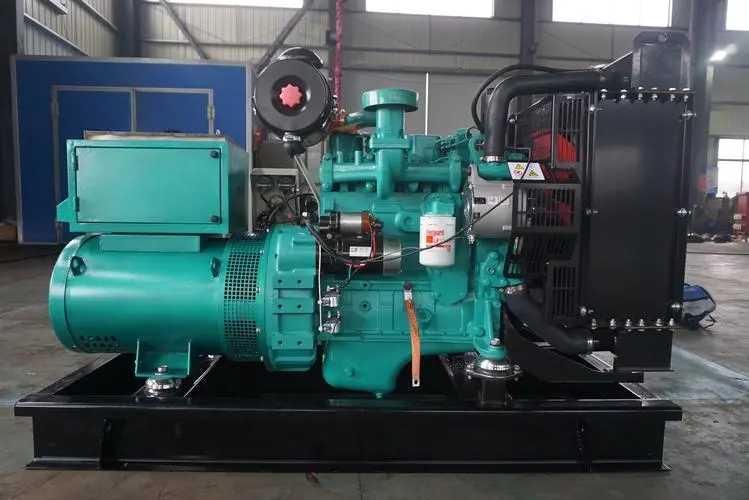Introduction
In today's fast-paced world, small businesses face numerous challenges that can impact their operations. One of the most critical challenges is ensuring a reliable source of power to keep the business running smoothly, especially during unexpected power outages. For many small businesses, a diesel generator can be the perfect solution to this problem. In useful reference , we will explore the benefits of diesel generators for small businesses, how they work, factors to consider when choosing one, maintenance tips, and much more.
Chapter 1: Understanding Diesel Generators
Diesel generators are a type of backup power system that uses a diesel engine to generate electricity. Unlike gasoline generators, which use gasoline as a fuel source, diesel generators use diesel fuel. These generators are known for their reliability, durability, and efficiency, making them an excellent choice for small businesses that need a dependable source of backup power.
Diesel generators consist of several key components, including the diesel engine, alternator, fuel system, cooling system, exhaust system, and control panel. The diesel engine is the heart of the generator and is responsible for converting the chemical energy in diesel fuel into mechanical energy. The alternator then converts this mechanical energy into electrical energy, which is used to power electrical devices and equipment.
Chapter 2: Benefits of Diesel Generators for Small Businesses
There are several key benefits of using a diesel generator for small businesses:

1. Reliability: Diesel generators are known for their reliability and durability, making them an ideal backup power solution for small businesses that cannot afford downtime.
2. Fuel Efficiency: Diesel generators are more fuel-efficient than gasoline generators, meaning they can provide longer run times on less fuel, saving small businesses money in the long run.
3. Longevity: Diesel generators are built to last and require less maintenance compared to other types of generators, making them a cost-effective choice for small businesses.
4. Power Output: Diesel generators are capable of providing high power output, making them suitable for small businesses with high energy demands.
5. Quick Start-Up: Diesel generators can start up quickly and provide power within seconds, ensuring minimal disruption to business operations during a power outage.
Chapter 3: Choosing the Right Diesel Generator for Your Small Business
When selecting a diesel generator for your small business, there are several factors to consider to ensure you choose the right one for your needs:
1. Power Requirements: Determine the power requirements of your business to select a generator with the appropriate power output to meet your needs.
2. Size and Portability: Consider the size and portability of the generator to ensure it fits in your workspace and can be easily moved if necessary.
3. Fuel Efficiency: Look for a diesel generator that is fuel-efficient to minimize operating costs over time.
4. Noise Level: Consider the noise level of the generator to ensure it is suitable for your work environment and does not disturb employees or customers.
5. Budget: Determine your budget and compare different options to find a diesel generator that offers the best value for your money.
Chapter 4: Installation and Maintenance of Diesel Generators
Proper installation and maintenance are crucial to ensuring the optimal performance and longevity of your diesel generator. Here are some key tips for installing and maintaining your generator:
1. Installation: Hire a professional electrician or technician to install your diesel generator to ensure it is set up correctly and safely.
2. Regular Maintenance: Follow the manufacturer's recommended maintenance schedule to keep your generator in top condition and prevent breakdowns.
3. Fuel Quality: Use high-quality diesel fuel to prevent clogs and ensure smooth operation of your generator.
4. Cooling System: Keep the cooling system of your generator clean and well-maintained to prevent overheating and damage to the engine.
5. Battery Health: Check the battery regularly and replace it as needed to ensure your generator starts up quickly when needed.
Chapter 5: Common FAQs About Diesel Generators
1. How long can a diesel generator run continuously?
Diesel generators can run continuously for several days or even weeks, depending on the size of the fuel tank and the power output of the generator.
2. Can a diesel generator be used indoors?
Diesel generators should not be used indoors due to the risk of carbon monoxide poisoning. They should be installed in a well-ventilated outdoor area.
3. How often should I service my diesel generator?
Diesel generators should be serviced according to the manufacturer's recommended schedule, which typically includes regular oil changes, filter replacements, and inspections.
4. Can a diesel generator be connected to a building's electrical system?
Diesel generators can be connected to a building's electrical system through a transfer switch, which allows the generator to automatically kick in during a power outage.
5. Are diesel generators environmentally friendly?
While diesel generators are more fuel-efficient than gasoline generators, they still emit pollutants and should be used responsibly to minimize their environmental impact.
Conclusion
In conclusion, diesel generators are an excellent backup power solution for small businesses looking to ensure uninterrupted operations during power outages. With their reliability, durability, efficiency, and high power output, diesel generators are a cost-effective choice for businesses of all sizes. By understanding how diesel generators work, the benefits they offer, factors to consider when choosing one, and how to properly install and maintain them, small businesses can enjoy the peace of mind that comes with having a reliable source of backup power.
